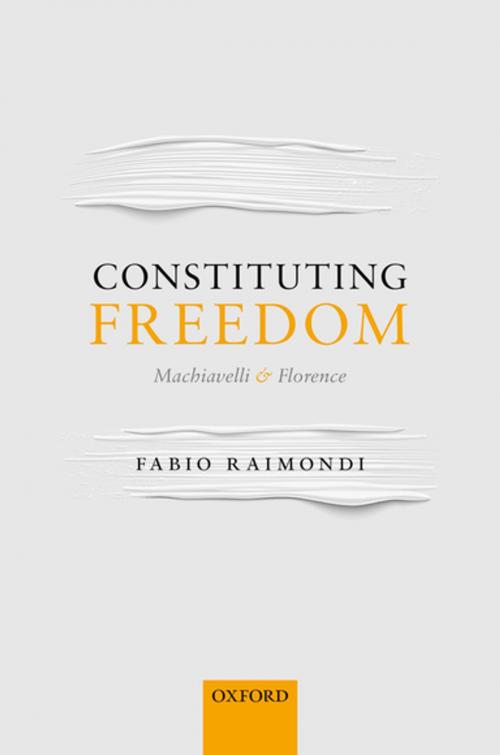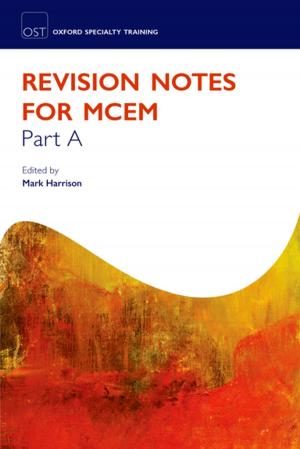Constituting Freedom
Machiavelli and Florence
Nonfiction, Social & Cultural Studies, Political Science, Politics, History & Theory, Religion & Spirituality, Philosophy| Author: | Fabio Raimondi | ISBN: | 9780192547392 |
| Publisher: | OUP Oxford | Publication: | December 29, 2017 |
| Imprint: | OUP Oxford | Language: | English |
| Author: | Fabio Raimondi |
| ISBN: | 9780192547392 |
| Publisher: | OUP Oxford |
| Publication: | December 29, 2017 |
| Imprint: | OUP Oxford |
| Language: | English |
Constituting Freedom focuses on the question at the heart of Machiavelli's thinking, that is 'in what mode a free state, if there is one, can be maintained in corrupt cities; or, if there is not, in what mode to order it?' The book analyses the different solutions thought up by Machiavelli, starting from the hypothesis of the 'civil principality', the definition of the republican ' civil and free way of life' and the examination of the history of the Florentine institutions, to two short writings during the years 1520-1522, the Discursus florentinarum rerum and the Minuta di provisione per la riforma dello Stato di Firenze, in which Machiavelli explored publicly, for the first time, his projects to bring back the republican freedom in Florence after the fall of the first Republic of the City and the Medici's return. The book's main argument is that Machiavelli was always a committed republican, even when he worked for the Medici, and even though he believed that the city's constitution needed to change after the fall of Soderini. In the Discursus and in the Minuta Machiavelli proposed a constitution in which the 'humours' were forced to mix themselves with one another so as to be obliged to generate a new form of 'equality', which according to Machiavelli is the main characteristic of a free, just, and stable republic. The aim was not to obtain equilibrium among parts of the city leaving them unaltered, but to mix them. Only in this way could Florence return to being free.
Constituting Freedom focuses on the question at the heart of Machiavelli's thinking, that is 'in what mode a free state, if there is one, can be maintained in corrupt cities; or, if there is not, in what mode to order it?' The book analyses the different solutions thought up by Machiavelli, starting from the hypothesis of the 'civil principality', the definition of the republican ' civil and free way of life' and the examination of the history of the Florentine institutions, to two short writings during the years 1520-1522, the Discursus florentinarum rerum and the Minuta di provisione per la riforma dello Stato di Firenze, in which Machiavelli explored publicly, for the first time, his projects to bring back the republican freedom in Florence after the fall of the first Republic of the City and the Medici's return. The book's main argument is that Machiavelli was always a committed republican, even when he worked for the Medici, and even though he believed that the city's constitution needed to change after the fall of Soderini. In the Discursus and in the Minuta Machiavelli proposed a constitution in which the 'humours' were forced to mix themselves with one another so as to be obliged to generate a new form of 'equality', which according to Machiavelli is the main characteristic of a free, just, and stable republic. The aim was not to obtain equilibrium among parts of the city leaving them unaltered, but to mix them. Only in this way could Florence return to being free.















